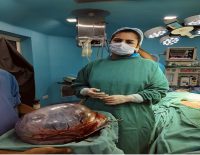Why experts underline need of Indian Medical Services to address healthcare gap

The healthcare experts have urged for the introduction of an elite cadre for medical experts under Indian Medical Services (IMS) akin to Indian Administrative Services (IAS) to address the gap of healthcare infrastructure in the country.
Recently, an independent think tank Think Change Forum (TCF) highlighted the imperative of strengthening the public healthcare system and emphasized the pivotal role that Indian Medical Services (IMS) can play in achieving this objective. IMS was present during the British era but was discontinued after India’s independence.
The experts opined that IMS will help bring the sheen and trust back to public health sector which has been lost to private sector; help stop brain drain from public medical services by attracting and retaining the best medical talent; allow for superior healthcare outcomes with better managed facilities and processes, as no longer generalists will be managing the specialists; reduce health crises and reduction in tertiary cases by improved preventive healthcare at primary levels.
Dr. Sharad Kr Agarwal, National President, Indian Medical Association (IMA), said, “The implementation of IMS holds the promise of enhancing service quality through induction of skilled doctors and addressing the persistent doctor shortage, especially in rural areas. Crucial to its success is equipping the cadre with ample facilities and resources comparable to those provided to IAS or IPS officers. This will ensure that doctors are incentivized to join IMS, drawn by a clear career trajectory and motivated to serve communities, even in remote areas.”
Explaining this, Dr Rajesh Gupta, Additional Director, Pulmonology & Critical Care, Fortis Healthcare, said, “The majority of the Indian public relies on the private sector for healthcare services, with 60% of inpatient admissions (IPDs) and 80% of outpatient visits (OPDs) occurring in private facilities.”
“Most of the time, we observe systemic failures in healthcare, which are not necessarily the fault of healthcare professionals but rather of the administrator who would typically be a generalist bureaucrat,” said Former Professor of Gynecology & Obstetrics, Gandhi Medical College, Bhopal Dr. Varuna Pathak
Dr. Vidur Jyoti said, “During the COVID-19 pandemic, the challenges and bottlenecks encountered in managing contingencies were primarily attributed to bureaucratic hurdles rather than any lack of commitment from healthcare professionals.”








Comments